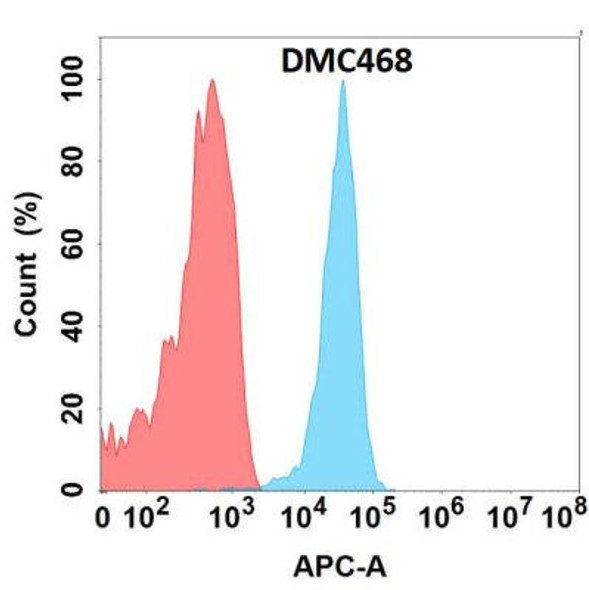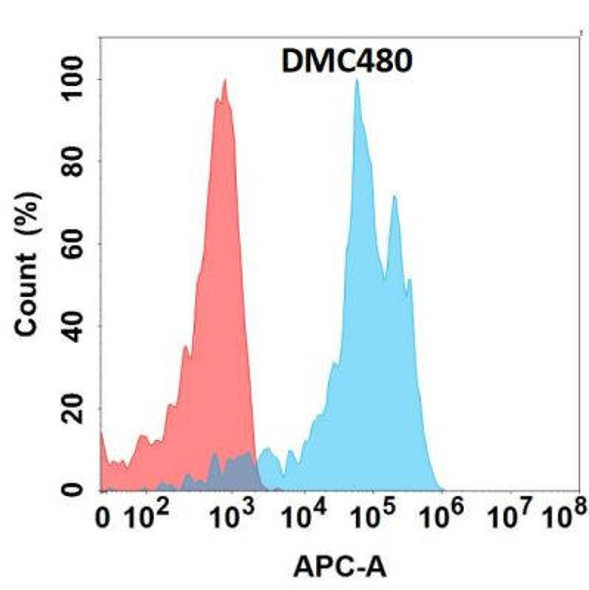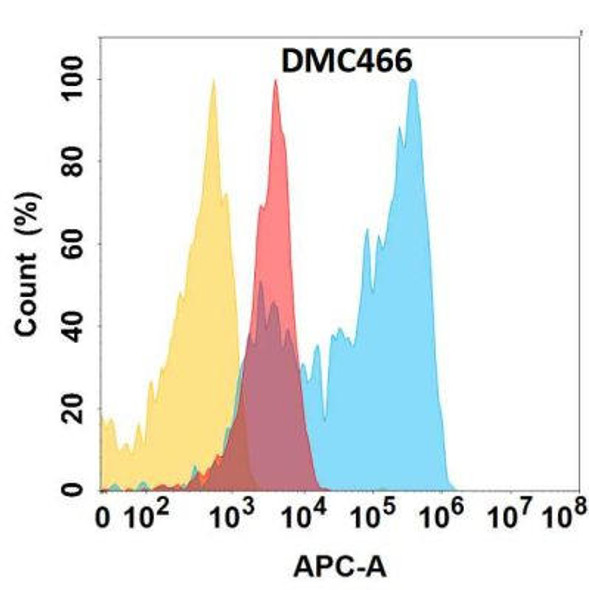Anti-MUC1 Chimeric Recombinant Rabbit Monoclonal Antibody (HDAB0316)
- SKU:
- HDAB0316
- Product Type:
- Rabbit Monoclonal Antibody
- Antibody Type:
- Monoclonal Antibody
- Size:
- 100 μg
- Reactivity:
- Human
- Host Species:
- Rabbit
- Antibody Isotype:
- Rabbit/Human Fc chimeric IgG1
- Clone:
- DMC493
- Synonyms:
- ADMCKD, ADMCKD1, CA 15-3, CD227, EMA, H23AG, KL-6, MAM6, MCD, MCKD, MCKD1, MUC-1, MUC-1/SEC, MUC-1/X, MUC1/ZD, PEM, PEMT, PUM
Description
system_update_altDatasheet
| SKU: | HDAB0316 |
| Size: | 100 µg |
| Clonality: | Monoclonal |
| Clone: | DMC493 |
| Synonyms: | ADMCKD, ADMCKD1, CA 15-3, CD227, EMA, H23AG, KL-6, MAM6, MCD, MCKD, MCKD1, MUC-1, MUC-1/SEC, MUC-1/X, MUC1/ZD, PEM, PEMT, PUM |
| Applications: | Flow Cyt |
| Recommended Dilution: | Flow Cyt 1:100 |
| Host Species: | Rabbit |
| Isotype: | Rabbit/Human Fc chimeric IgG1 |
| Reactivity: | Human |
| Purification Method: | Purified from cell culture supernatant by affinity chromatography |
| Formulation: | Powder |
| Buffer: | 1XPBS |
| Storage: | Store at -20°C to -80°C for 12 months in lyophilized form. After reconstitution, if not intended for use within a month, aliquot and store at -80°C (Avoid repeated freezing and thawing).Lyophilized antibodies are shipped at ambient temperature. |
| Usage: | Research use only |
| Background: | This gene encodes a membrane-bound protein that is a member of the mucin family. Mucins are O-glycosylated proteins that play an essential role in forming protective mucous barriers on epithelial surfaces. These proteins also play a role in intracellular signaling. This protein is expressed on the apical surface of epithelial cells that line the mucosal surfaces of many different tissues including lung, breast stomach and pancreas. This protein is proteolytically cleaved into alpha and beta subunits that form a heterodimeric complex. The N-terminal alpha subunit functions in cell-adhesion and the C-terminal beta subunit is involved in cell signaling. Overexpression, aberrant intracellular localization, and changes in glycosylation of this protein have been associated with carcinomas. This gene is known to contain a highly polymorphic variable number tandem repeats (VNTR) domain. Alternate splicing results in multiple transcript variants. |






